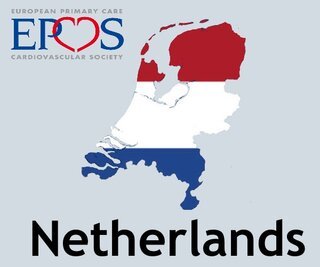Report of EPCCS Council on organization of cardiovascular Primary Care in different countries
In the Netherlands there is a system in which approximately all Dutch are listed at a GP’s office with 9,200 working GPs in Holland, which brings the average list per practice to 1,850. In Holland you become a GP after you finish medical school by following a 3-year training, 2 years of this and another general practice, and 1 year in a hospital setting.
A GP serves as a gatekeeper and almost all contacts with the secondary care, with hospital care must go through the GP’s office. There are some exceptions; emergency care goes around your practice. For after hours, we have large structures in which care is organized mostly in a setting close to a hospital where GPs from the region do consultations, home visits, and so on.
On the subject of cardiovascular care, there is a very strong development in primary care that started in 2006 when we started to organize care for chronic diseases, diabetes, cardiovascular risk management, COPD, and asthma. The main reason why this developed is that when the healthcare act changed a lot of consultants and advisory people organized a kind of traveling circus through the country, telling us that if we would not organize care in this way, someone else would do it, and we would miss the income coming from it. That was the fastest change in care I have ever seen in Holland.
Chronic care programs are divided into smaller units, mostly regional. These regional structures provide financial management, human resources, quality control, and reporting. Every year we must negotiate with insurance companies about the price for which these insurance companies like to buy 1 year of diabetes care or 1 year of cardiovascular risk management. The actual care is conducted by nurses mainly while working in the offices of the GPs and under the supervision of GPs.
We have 12 different fields in which you can specialize as a GP at this moment; for cardiovascular disease, it is a course of 2 years that you have do alongside your practice and it costs a day or 2 per week. If you want to stay registered as a GP with special interests, you must re-register every 5 years. In addition, we must cover some CME points, approved credit points apart from the points you need for your GP registration.
We have organized these GPSIs in Holland on cardiovascular disease in the Dutch General Practitioner’s Expert Group on Cardiovascular Disease. At this moment, we have 65 members, mainly GPSIs. Apart from them, there are some researchers that are members, and they are taking part in discussion and training programs. This expert group provides training programs for GPs in the field, so on cardiovascular topics, provides help in organizing care and is available for consultation depending on how the care is organized in the different regions. We also provide the refresher training for the GPSIs and most of the guidelines committees, and we have 1 or 2 members from our society.
